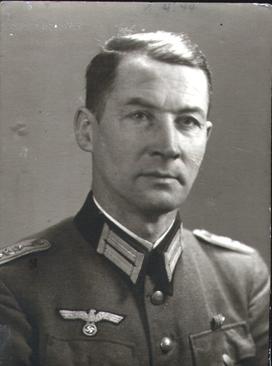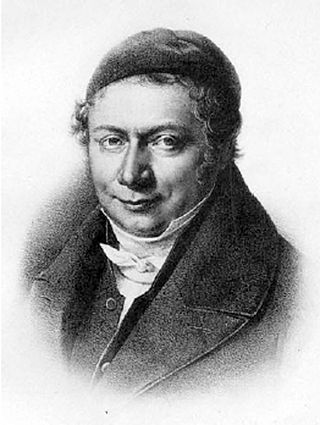Related Research Articles

Wilhelm Adalbert Hosenfeld, originally a school teacher, was a German Army officer who by the end of the Second World War had risen to the rank of Hauptmann (captain). He helped to hide or rescue several Polish people, including Jews, in Nazi-German occupied Poland, and helped Jewish pianist and composer Władysław Szpilman to survive, hidden, in the ruins of Warsaw during the last months of 1944, an act which was portrayed in the 2002 film The Pianist. He was taken prisoner by the Red Army and died in Soviet captivity in 1952.

Christian Ludwig Nitzsch was a German zoologist. He is best remembered for his approach to classifying birds on the basis of their feather tract distributions or pterylosis of their young.
Werner Rahn was a German naval historian and naval officer.

The Military History Research Office was an office of the Bundeswehr located at Potsdam, Germany.

Sedantag was a semi-official memorial holiday in the German Empire celebrated on the second day of September to commemorate the victory in the 1870 Battle of Sedan. After the outbreak of the Franco-Prussian War a few weeks earlier, French emperor Napoleon III and his army were taken prisoner in the fortress of Sedan by Prussian troops, a major step to eventual victory.
Michael Epkenhans is a German military historian known for his works dealing with the German Imperial Navy. He was the director of the Otto-von-Bismarck-Stiftung in Friedrichsruh from 1996 to 2009. In February 2009 he became the director of research for the Militärgeschichtliches Forschungsamt der Bundeswehr in Potsdam. Following a reorganisation in 2013, the organisation became the Center for Military History and Social Sciences of the Bundeswehr.

The Army of the Holy Roman Empire was created in 1422 and came to an end when the Holy Roman Empire was dissolved in 1806 as a result of the Napoleonic Wars.
Horst Wolfgang Böhme is a German archaeologist with a focus on Late Antiquity / Early Middle Ages and research into castles.
Jürgen Förster is a German historian who specialises in the history of Nazi Germany and World War II. He is a professor of history at the University of Freiburg, the position he has held since 2005. Förster is a contributor to the seminal work Germany and the Second World War from the Military History Research Office (MGFA).
Bernd Wegner is a German historian who specialises in military history and the history of Nazism. Since 1997 he has been professor of modern history at the Helmut Schmidt University in Hamburg, Germany.
Manfred Messerschmidt was a German historian who specialised in the history of Nazi Germany and World War II. He was the longtime research director at the Military History Research Office (MGFA) who conceived and launched the seminal series of books Germany and the Second World War, edited by the MGFA.
Gerhard Schreiber was a German military historian who specialised in the German–Italian relations during the Nazi era. He was a widely published author on the history of World War II and Nazi Germany. Schreiber was a long-term researcher at the Military History Research Office (MGFA) and contributor to two volumes of the seminal series Germany and the Second World War from the MGFA.
The Bundeswehr Centre of Military History and Social Sciences is a German research institution focused on military history and social sciences. Located in Potsdam, it is a part of Germany's Federal Ministry of Defence. The organisation was formed in 2013 by merging the Military History Research Office (MGFA) and the Bundeswehr Institute of Social Sciences.
Wilhelm Deist (1931–2003) was a German historian and author who specialised in the European history of 19th and 20th with an emphasis on the history of World War I. Deist was senior historian at the Military History Research Office (MGFA) and honorary professor at the University of Freiburg. Deist was a widely published author and a chief editor of the seminal series Germany and the Second World War from the MGFA.
Jens Westemeier is a German historian and author who specialises in military history and the history of the Nazi era. He has published several books on topics relating to the Waffen-SS and its personnel and commanders.
The Military History Working Group is a German professional association and research network formed in 1995 in Freiburg. It focuses on the interdisciplinary war studies and military history.
Prize for Military History is an award recognising achievements in the fields of military history and history of military technology. The prize is bestowed by the German Ministry of Defence every two years.
The Militärgeschichtliche Zeitschrift is a biannual peer-reviewed academic journal covering military history. It is published by Walter de Gruyter on behalf of the Center for Military History and Social Sciences of the Bundeswehr in Potsdam, Germany.
Lottlisa Behling was a German art historian and botanist.
Peter Baumgart is a German historian.
References
- ↑ ZMSbw 2017, p. 1.
- 1 2 Poulsen, Galster & Nørby 2013, p. xiii.
- 1 2 Poulsen, Galster & Nørby 2013, p. xiii-xiv.
- 1 2 Poulsen, Galster & Nørby 2013, p. xiv.